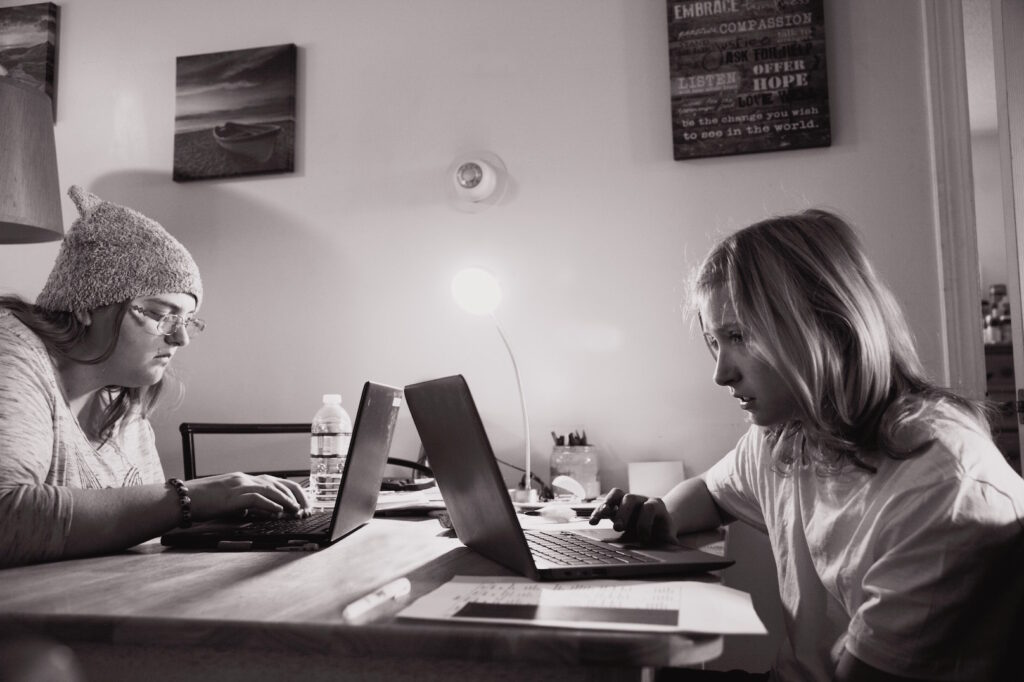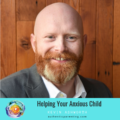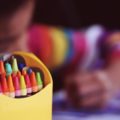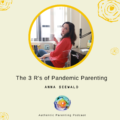
Teens’ mental health is on a rise.
By Anna Seewald
“You just don’t get it, Mom!” said my daughter. We were on our daily walk, and discussing how to make things better with her virtual learning experience.
“What do you miss about school?”
“I miss my seat by the window, I miss running into kids in the hallways, even making mischief during science class.There is something about being in school that helps me focus better and learn. It’s just not the same at home.”
Just as I was feeling helpless, she added, “There is nothing you can do.”
Because of COVID-19, our lives are very restricted and limited in many ways.
It is extremely difficult to get her outside for a walk or a run or a bike ride, or any kind of outdoor time or physical activity, including things that she used to enjoy. She has zero desire or interest.
We insist on at least walking daily.
What’s happening in the world right now is unprecedented. Back in March when we went into lockdown, who knew it would last this long?
As a parent educator I have been receiving increased pleas for help from parents across the US.
“We are struggling with our 9 year old son who has been diagnosed with ADHD, ODD, and anxiety. Things have gotten progressively worse over the course of the last year, and we are feeling out of control and helpless.
Things are so severe we can barely get through one day without outbursts and chaos. It’s affecting every aspect of our lives. We are exhausted and drained.”
“I can’t force my child to participate in school. I’m tired of questioning myself and my parenting skills.”
LOSS, GRIEF AND STRESS ARE EVER PRESENT IN OUR LIVES
A lot has changed in our lives. We work, learn, socialize and function in ways that were not familiar for many of us. Remotely. From home. Many people, on top dealing with real losses such as jobs, also experience what experts call ambiguous loss. The loss of our normal life, the more intangible and invisible parts with no clear end or closure.
It’s the ambiguous nature that makes it a challenging and confusing kind of grief.
The overall situation is hard on everyone, but our children are struggling tremendously, especially middle schoolers and high schoolers.
Sporting activities, birthday parties, extracurricular classes, social interactions have diminished or stopped. What has increased is immobility, junk food consumption, screen use, sleep problems, pressure, expectations, and overall stress for our children.
Learning how to cope with stress is an important part of development. However, when normal stress becomes more frequent and prolonged in the absence of support it turns into a toxic kind, which is harmful.
When the body’s stress system is activated, the ability to focus, pay attention, do complex cognitive tasks, and regulate our emotions diminishes.
Toxic stress leads to problems with sleeping, cognition, motivation and depression.
THE IMPACT OF A SEDENTARY LIFE AND EXCESSIVE SCREEN TIME
There are days that my child doesn’t leave her room at all. She stays all day in PJ’s, often in bed, under duvet covers, either doing remote school or Facetiming with friends while playing Minecraft.
I don’t want to even write about increased screen time and its effects, often addictive, on children. It’s worth mentioning that excessive screen time affects children’s psychological well-being and leads to behaviors, such as irritability, defiance, excessive tantrums, mood swings, poor short-term memory, trouble sleeping, learning difficulties and disorganized behavior.
I’ve heard from several friends that their children’s cholesterol levels are high and many parents reported that their children have gained weight during the pandemic.
If mornings were challenging before the pandemic in many households, now it’s nearly impossible to get kids up and ready for school. Routinely we have a hard time waking our child for her 7:40 am class, even though she goes to bed at her regular time. We have a consistent bedtime and we do everything to protect sleep. On two occasions she has slept till noon.
The topic of teens not getting enough sleep in America has been studied and talked about a lot. Sleep for adolescents is critical for mental and overall health.
THE STRESSED OUT PARENT
What also has changed is the way in which parents discipline and engage with their kids.
They use extreme and unusual measures to control and influence their kids to log into online school, remain in class, complete homeworks, turn in missing assignments and get off screens.
“I feel like a policeman,” says Megan, a mom of 2 school-aged kids. “Unless I sit next to him, he won’t participate in school.”
Parents feel pressured to ensure that their child does well in school. An added pressure sometimes arises when there is a mismatch of expectations between parenting partners regarding education and learning.
Their kids’ poor grades and performance, they think, reflects badly on them. So to solve the problem they increase demands and pressure on their kids. This leads to arguments and fights in people’s households around school work, which create negative moods and toxic cycles in homes. Parents and kids get stuck in vicious cycles of rageful behaviors, outbursts, explosive episodes, cursing, storming out, slamming doors, and so on.
In this one survey, 58% of parents report that managing their children’s schooling at home was a source of stress and anxiety.
I recently learned that some working parents put surveillance cameras in their kid’s bedrooms to keep an eye on them.
Even households where there had been no huge conflicts are now faced with challenges.
Parents feel drained, exhausted, depleted, exasperated, hopeless, worried, concerned, frustrated and these are not great states to be in day and day out while trying to work from home, juggle endless responsibilities, cope with their own mental health issues, deal with their own stress and provide quality care of the whole family.
For parents of children with special needs life has become very difficult.
In a recent Huff Post article Help! I Can’t Stop Yelling At My Kids During COVID-19 40% of parents said they’re yelling or even screaming at their kids during the pandemic.
STUDENTS MISS THE SOCIAL ASPECT OF THE LEARNING EXPERIENCE
Online school is taking its worst toll on children, parents, and families.
According to a Gallup poll, about 30% of parents say their child is experiencing “emotional or mental harm” due to social distancing and school closures.
The home environment is not conducive to learning. There are other people in the household, siblings, other distractions. Some kids do not have stable internet, privacy, or learning devices. Some children also need to take care of their younger siblings as their parents work.
“Success for a student with remote learning is about more than a device connected to the internet.”says Nicholas Gehl
LEARNING IS A RELATIONAL EXPERIENCE
Staring at a cold screen with black squares because no one has their camera on, trying very hard to maintain focus, concentrate, listen, and absorb information is extremely hard. I witness my daughter’s frustration every day. Sometimes the teachers are in masks. There are difficulties with understanding what they say and not seeing their facial expressions doesn’t make learning easy. This leads to children tuning out, getting a snack, falling asleep, watching a Youtube video or making a Tik Tok.
Humans are wired for connection. For effective communication we read each other’s facial expressions and interpret non-verbal cues. With Zoom, we miss out on those important cues for interpreting emotions, attitudes and engagement become exhausting as they require a lot of energy.
We coordinate our emotions and regulate each other’s nervous systems. Learning from a computer can’t provide that. So Zoom fatigue is real.
CHILDREN ARE NOT EQUIPPED WITH NECESSARY SKILLS FOR REMOTE LEARNING
Anyone who has worked from home before the pandemic can attest to how hard they have worked to become self-disciplined and establish practices for themselves in order to be productive. We expect our kids to not only possess such skills overnight (time management, organizational skills, decision making, goal setting, meeting goals, planning to name just a few) but, excel at them.
We know that children quickly switch their attention from educational to entertainment-based media, so expecting kids to focus, pay attention, engage in learning and sustain those cognitive states for extended periods of time is highly unrealistic.
When I recorded a podcast episode on what I called the 3 R’s of Pandemic Parenting (regulation, routine and relationships), I expressed a worry that what our children are going through right now might have long-term effects and stated that this pandemic might even be considered an adverse childhood experience, ACE.
I was worried about our children’ mental health and emotional well-being, but now I think that their physical health is at risk too.
HAVE WE REACHED A TIPPING POINT?
At this phase of the pandemic the damage done to children is likely to be irreparable.
I overheard a phone conversation my daughter was having with a friend, “How many classes are you failing?”
Feeling like a failure is not helpful at all for intrinsic motivation. Kids want to give up. They have a feeling of helplessness. If nothing you do makes things better, why try to do anything at all?
MENTAL HEALTH MATTERS
I wonder about the kids who were struggling with in-person learning before the pandemic. How are they doing now?
We already knew before the pandemic that mental health disorders and conditions in children increased overtime in our society.
In her short film Numb, a 15 year old Candian teen hauntingly captures the monotonous, isolated reality of many teens. It brings tears to my eyes every time I watch it. The short film features Liv in her bedroom, looking at images of pre-pandemic life and scrolling through emails that wish her “health, happiness and safety.” The final scene is a time lapse of the days passing as Liv sits in the same place on her bed, clothes changing, items around her moving. By the end, she breaks into a silent scream.
Adolescence is a time of rapid intellectual and emotional development. It is also a time during which caring, trusting relationships—with both adults and peers—are critical.
No amount of Facetime and gaming will substitute real life interactions.
We need to prioritize mental health and the emotional well-being of our children.
Without mental health you can’t focus on academic performance.
We are parenting and teaching during a crisis. Exceptional circumstances like this require innovative, creative, and unusual ways of being and doing things.
Moving into remote learning was temporary, but the impact may be irreparable and long term.
As I conclude I leave you with some questions.
What are the benefits of homework during this pandemic? Can we move into the Fail/Pass grading system?
Is testing absolutely necessary? And why are counseling groups not initiated by schools? Can schools hire more mental health professionals? Can schools implement half days? Can instruction time be shortened? Can school day begin a little later? Can schools implement more group and paired activities? Can the primary focus of schools shift from academics to mental health and wellness?
As I enter my daughter’s room to invite her to dinner, I’m struck by this haunting image: all alone in her room, lights out, with a computer on her lap and a bunch of other kids on the other side in dark rooms with screen- lit faces trying to connect, play and have fun.
How this is all going to affect this generation of kids? Am I being an alarmist? What are the long-term implications and consequences of this pandemic going to be? The prolonged stress, the lack of social support, the pressure, the struggles with remote learning, poor nutrition, lack of movement and physical activity, increased screen use and sensory stimulation, no adequate sleep, negative moods and energy at home.
What can we do now to protect our children’s mental health? And who is responsible for it?



